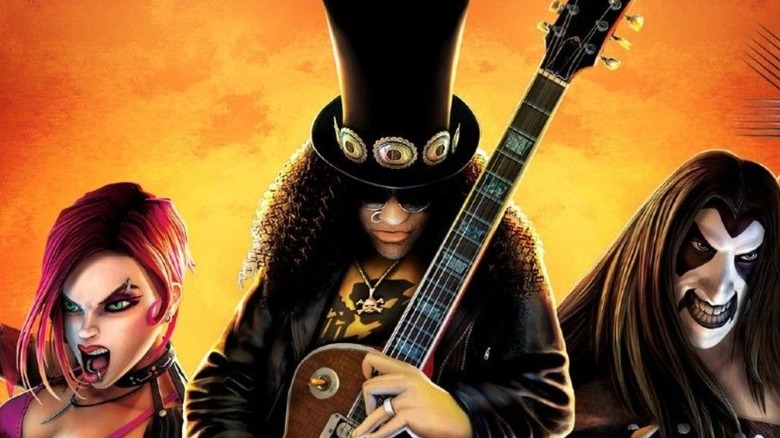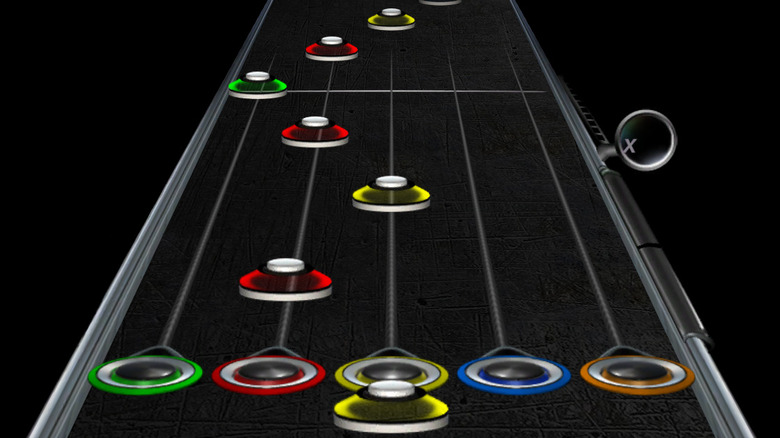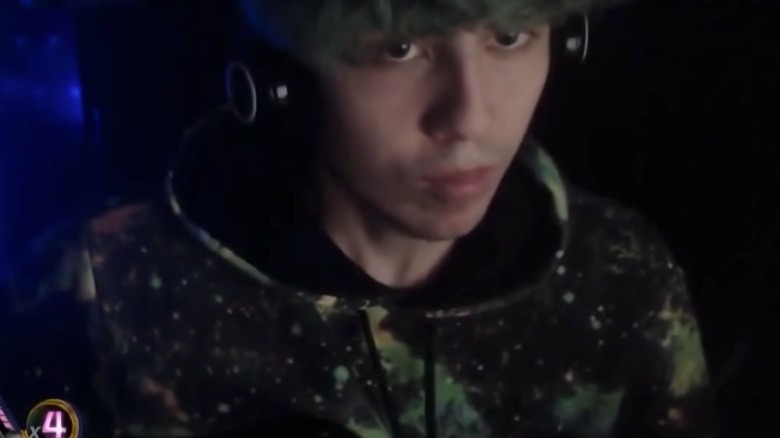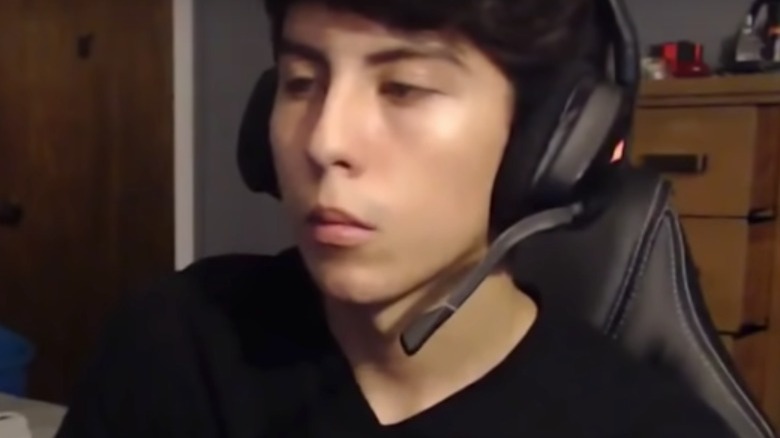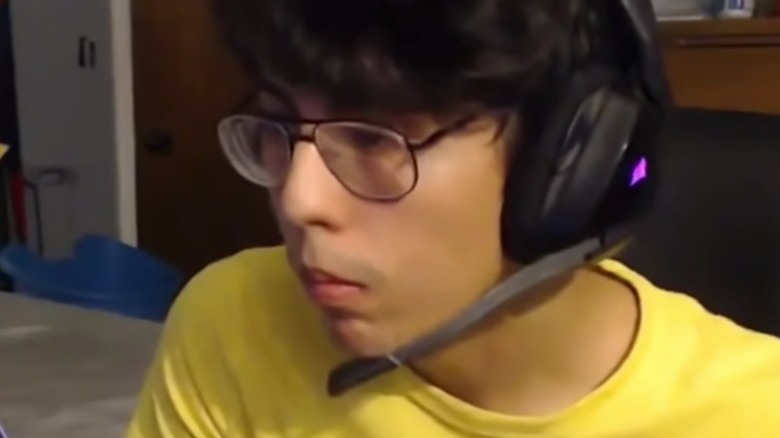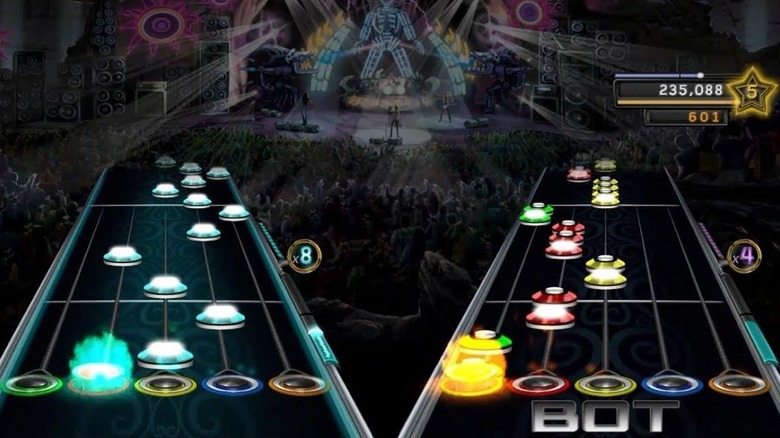Schmooey's Guitar Hero Cheating Scandal Explained
While the "Guitar Hero" franchise saw a rapid decline in the late 2000s and early 2010s thanks to an abundance of games and corporate greed, it retains a passionate community following to this day. This is thanks largely to the release of the fanmade 2017 game "Clone Hero." Through it, players have been able to complete perfect runs of songs heretofore thought unbeatable, often after years of practice, while accomplishing incredible challenges in the most unbelievable ways.
Recently, however, the passionate "Clone Hero" scene has been rocked by a major scandal. A player by the name of Schmooey, previously thought to be the game's greatest player, has been outed as a cheater. Through the use of complex methods in gameplay and editing, Schmooey created an image of being the best that was simply not true. Schmooey's many "accomplishments" seemed hard to believe, and it turns out there was reason to not believe them.
An Intro to Clone Hero
For those unaware, "Clone Hero" is a fan-creation adaptation of "Guitar Hero" available on PC, Mac and Linux. This fan clone was made as an answer to the officially released, Aspyr-developed PC port of "Guitar Hero III: Legends of Rock." While the PC version was popular among fans for its ability to add custom songs, it was also criticized for its massive system requirements, and for having pertinent lag and slowdown even on the most powerful machines (via GameSpy).
"Clone Hero" continues to allow players to add their own custom songs, but it also fixes the slowdown associated with the original Aspyr-developed port. This allows players to have an easier time grinding difficult sections and songs, giving them greater chances to perfect the most impossible songs and patterns. As a result, it has a passionate scene and has even made an appearance at the popular speedrunning charity event Awesome Games Done Quick (via Dexerto). The game quickly cultivated a massive following, complete with its own stars.
Schmooey Rises to The Top
According to Kotaku, Schmooey, 20, began his rise to the top of the "Guitar Hero" scene in his teens. His first "Guitar Hero" video (now unlisted) was uploaded to YouTube back in 2013, and by 2018, Schmooey was showcasing his talents as a player. 2019, however, was when he really took off. Not only was Schmooey achieving perfect runs on seemingly impossible songs with relative ease, but he was completing them much faster than virtually anyone else in the "Clone Hero" community.
In one notable instance, one of the game's best players, Frif, was grinding the song "Zoidberg's Revenge" on his stream in an attempt to full combo (FC) the song first. While streaming, Schmooey came out of nowhere and sniped the attempt, accomplishing the FC before Frif could. That success would continue, and Schmooey would be accepted into the "Clone Hero" scene and acknowledged as perhaps the greatest player ever. Schmooey's success also saw him earn thousands of dollars in bounties from accomplishing certain FCs before everyone else (via PCGamer).
Skepticism Mounts
While Schmooey's accomplishments were exciting on the surface, accusations of cheating started to follow him as he grew in the scene (via GGRecon). In some of his videos, dark camera footage obscured his hand movements, videos would occasionally lag, and players would speculate that he wasn't actually playing notes fast enough. This was prevalent on his FC of a section of Van Halen's "I'm The One" played at 125% speed, where viewers felt that Schmooey was not strumming the ridiculously fast section quickly enough.
Further suspicions mounted with his "technical FC" of the Dragonforce song "Through the Fire and Flames" at 250% speed, nearly three times the speed of the original song (via NME). After its release, the video was removed, which Schmooey claimed was due to a copyright strike. Viewers were confused at how the YouTube copyright system would've picked up the song when played at 250% speed, and an analysis of the camera footage led observers to believe that Schmooey sped up his footage (via ComicBook). These accusations initially fell by the wayside, though, and Schmooey's presence and gameplay at public events led many to believe he was the real deal.
Schmooey Gets Caught
Everything came crashing down for Schmooey, however, after a December 2021 FC of the song "9 Patterns of Eternal Pain." Beyond the typical allegations of Schmooey not playing the song fast enough, the biggest kicker of this video was the ending, where the appearance of a Windows Media Player overlay led viewers to conclude Schmooey faked the video by playing over pre-recorded footage. As a result, several top players staged an intervention to confront Schmooey, who after initially defending himself, admitted to faking a few of his videos.
Even this wasn't good enough for viewers, who began pouring through videos with a fine-toothed comb to discover that almost all of them had been faked in some way, as reported by Karl Jobst. Deep observations showed that Schmooey played songs at slower speeds and sped them up in the final videos, and also used an editing technique known as splicing to string multiple playthroughs together under the guise that it was one complete run. Backed against a wall, Schmooey uploaded a now-deleted YouTube apology video admitting to cheating, while explaining in a Twitlonger that he used a cheat engine, editing software, and auto-strum to fake his FCs. He then deleted his YouTube and Twitter accounts and paid back the bounties he had previously won for his faked FCs (via TheGamer).
The Scene Moves Forward
Schmooey's cheating scandal sent a major shockwave through the "Clone Hero" community. Schmooey's exploits took away world-first accomplishments from other players and served only to cause all future accomplishments in the game to be potentially scrutinized. Viral "Clone Hero" content creator Acai spoke about how Schmooey swindled the scene and caused players to let their guards down because his techniques inspired other players. Acai also expressed his desire for anti-cheat software to be integrated into "Clone Hero."
Unfortunately, the saddest part of this scandal is that Schmooey was actually a very good "Clone Hero" player, having accomplished numerous amazing feats in live, in-person settings with fellow "Clone Hero" greats. Shamefully, though, he cheated his way to the top, and was only able to apologize after he was caught and exposed for it. Hopefully, the "Clone Hero" community can continue to move forward from this, and work to prevent another such scandal from happening.

